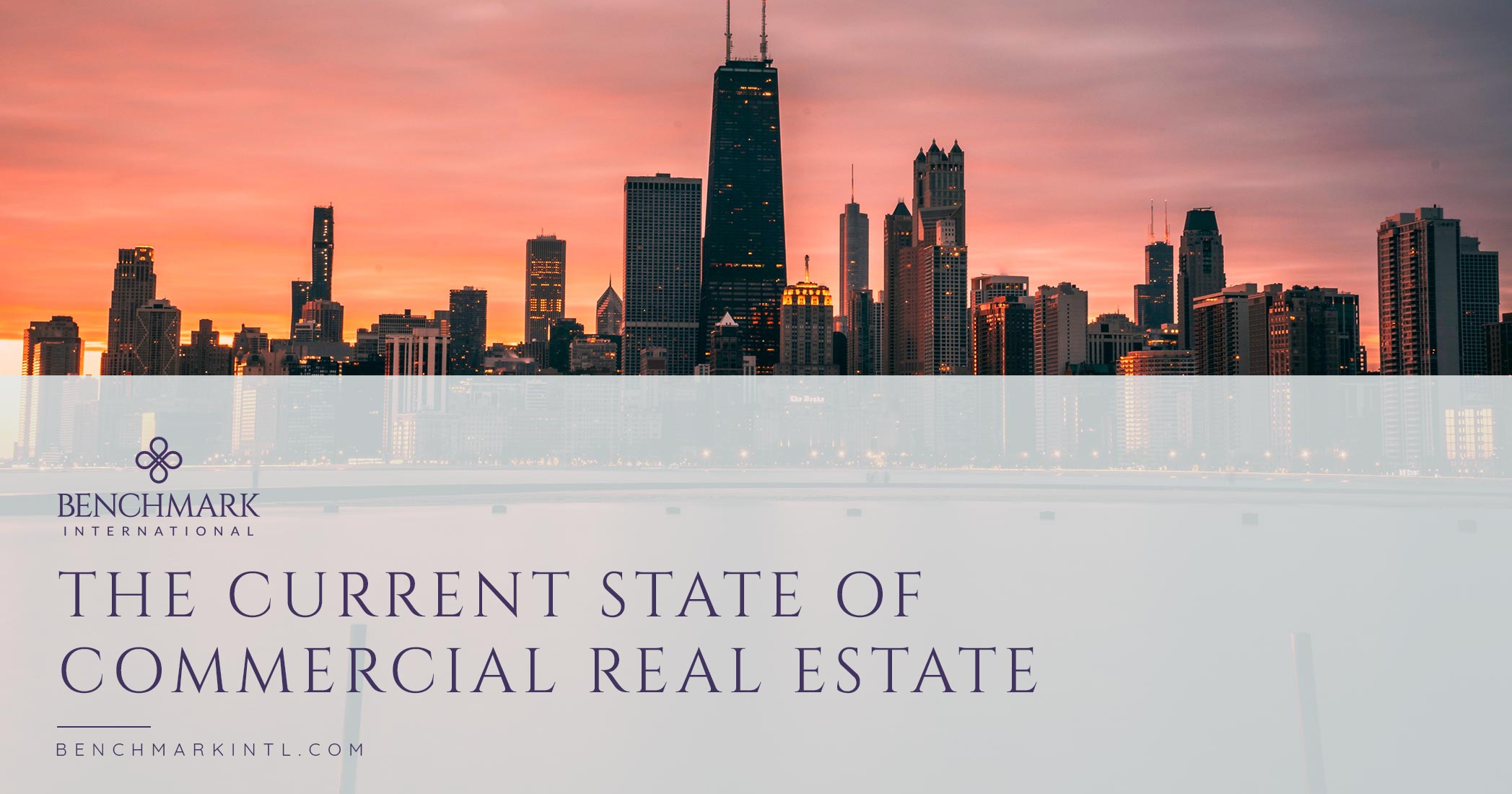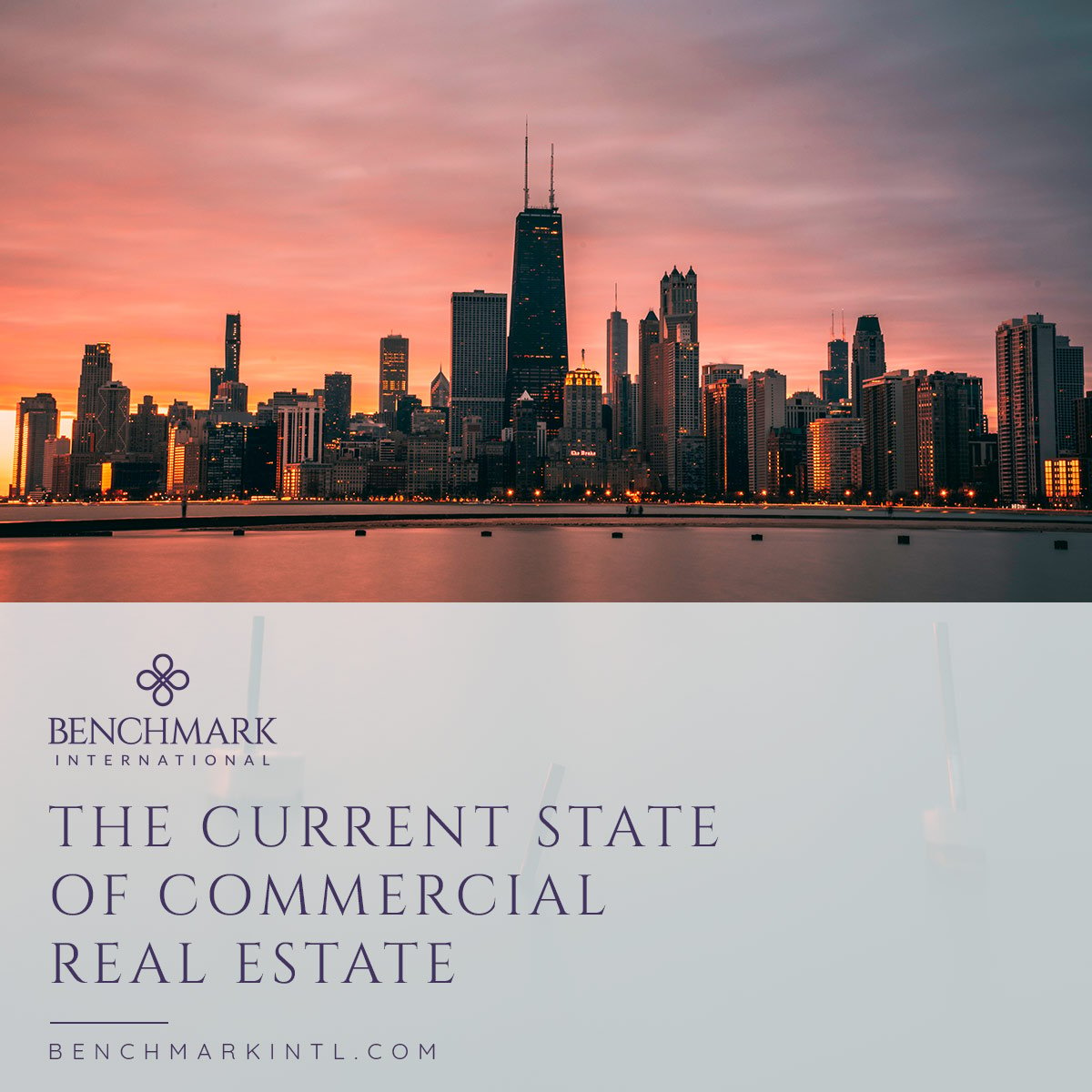
The COVID-19 pandemic has had a negative impact on all classes of commercial real estate. Yet, it also created some new opportunities within the commercial real estate (CRE) market, such as affordable rental prices, improved digital communication and payment facilitation, as well as new opportunities for business owners and investors. And further recovery is well underway.
CRE prices fell 11% between March and May of 2020. Since July, prices increased 7%, erasing over half of those pandemic declines. With investors sitting on wealth, more investment in stocks and bonds took place, which pushed prices up and interest rates down. With inflation being a growing concern, more investors may look to commercial properties with leases that have built-in rent increases to keep pace with inflation.
Office Space
Pandemic lockdowns forced most companies to have employees work from home, and some plan to continue to do so because of proven increases in worker productivity and cost savings. But there are still many business owners seeking affordable office space, as well as some CRE opportunities that didn’t previously exist. For example, vacancies have made it an ideal time for some property owners looking to renovate or some corporations looking to expand. Despite a boom in remote work in the tech sector, Facebook signed a major deal for physical office space in New York City during the pandemic, making it one of the Big Apple’s largest corporate tenants.
Some large investors are still buying property because, when stock and bond prices go up faster than those of other assets, their share of a pension fund’s holdings goes up. That gives the fund an incentive to buy more real estate simply to rebalance. We’ve seen investors purchase real estate in places that were hardest hit economically due to the pandemic. In San Francisco, the amount of office space available for lease is the highest on record. The tech firm Dropbox offered a sublease of a large part of its headquarters, and the building still sold in March to a private equity firm for $1.1 billion. That is the most expensive sale of an office building in San Francisco in over a decade.
Technology
The pandemic has accelerated the use of technology in the CRE market. Corporations around the world are focusing on ways to be more efficient, tracking new behavioral trends, establishing more secure spaces, and identifying weaknesses at the portfolio level. The CRE corporations that recognize these details will be equipped to offer better client experiences and more stable sales.
E-commerce also accelerated during the pandemic. As a result, retailers and logistics companies are increasing their fulfillment center footprints, and many are switching to a broadened inventory model that is designed to prevent product shortages. With this growing trend, many online retailers are finding the need to lease warehouse space, which will lead to increased CRE leasing opportunities that will be good for owners and investors.
Shrinking Cities & New Horizons
Many major cities have seen a population decline, such as New York, Chicago, and L.A.
Before the pandemic, these metro areas were already expensive with high rents. The lockdowns that led to work-from-home policies drove mass departures from these cities because people no longer needed to be there to keep their jobs. They are looking for places that are more affordable, have better weather, and offer a better lifestyle. U.S. cities that have seen population growth include Austin, Raleigh, Nashville, and Charlotte. Suburban growth has also been on the rise, as millennial families seek more space, less congestion, and more affordable living.
In March, the National Association of Realtors (NAR) identified the top 10 commercial real estate markets for 2021:
- Austin/Round Rock, Texas
- Cape Coral/Fort Myers, Florida
- Charleston/North Charleston, South Carolina
- Las Vegas/Henderson/Paradise, Nevada
- Nashville/Davidson/Murfreesboro/Franklin, Tennessee
- Phoenix/Mesa/Scottsdale, Arizona
- Raleigh, North Carolina
- Salt Lake City, Utah
- Seattle/Tacoma/Bellevue, Washington
- Tucson, Arizona
These markets are affordable and drawing new residents with the flexibility to work from home, and they also offer much lower rent for office and retail space, making them more attractive to new and expanding businesses.
Real Estate Investment Trusts (REITs)
Despite the pandemic, REITs have performed well, but there is some variation based on property types. REITs had strong balance sheets, liquidity, and solid operating fundamentals when the pandemic hit. Some sectors were hit harder than others, such as hotels and retail REITs. But sectors related to the tech economy have seen a surge in demand, such as data centers and logistics facilities.
Sustainability
The pandemic has renewed an increased focus on sustainability, with more investment in environmental, social, and corporate governance (ESG). In 2019, $240 billion was invested in energy efficiency in the building, transportation and industry sectors. Green recovery and sustainable finance will continue to be significant factors in 2021 and beyond, as institutional CRE investors will track ESG initiatives.
The American Rescue Plan
Passing of the American Rescue Plan is playing a large role for small business owners in the U.S., as they are able to use stimulus money for expansion, which is creating a need for more space, giving CRE investors and owners new opportunities. Banks have also been more forgiving to property owners. Regulators have permitted banks to delay loan payments without having to declare defaults, so lenders are in no hurry to foreclose or sell loans. Additionally, the Federal Reserve is likely to keep short-term interest rates low throughout 2021. This could offer a favorable environment for commercial borrowers and continued economic recovery.
The Future
There is still a fair share of uncertainty regarding the CRE market, but with vaccination increasing and travel being restored, the market should see more recovery through late 2021. Many investors are still in the market, even amid restrictions and delays. And some sectors have been stable and performing well that could be good investments, such as retail spaces, e-commerce warehouses, self-storage units, and medical spaces.
Americas: Sam Smoot at +1 (813) 898 2350 / Smoot@BenchmarkIntl.com
Europe: Michael Lawrie at +44 (0) 161 359 4400 / Lawrie@BenchmarkIntl.com
Africa: Anthony McCardle at +27 21 300 2055 / McCardle@BenchmarkIntl.com
ABOUT BENCHMARK INTERNATIONAL
Benchmark International’s global offices provide business owners in the middle market and lower middle market with creative, value-maximizing solutions for growing and exiting their businesses. To date, Benchmark International has handled engagements in excess of $7B across various industries worldwide. With decades of global M&A experience, Benchmark International’s deal teams, working from 14 offices across the world, have assisted hundreds of owners with achieving their personal objectives and ensuring the continued growth of their businesses.
Website: http://www.benchmarkintl.com
Blog: http://blog.benchmarkcorporate.com
 Benchmark International
Benchmark International  Benchmark International
Benchmark International 






